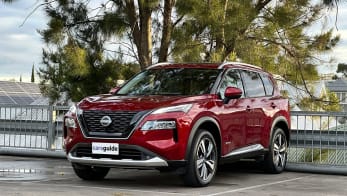China’s BYD has put out a call to action for compatriot car brands to step up on the world stage and “demolish the old legends” as it eyes further global proliferation.
Reuters is reporting that BYD Founder and Chairman Wang Chuanfu presented a video at a Chinese event earlier this week stating “the time has come for Chinese brands”.
“It’s an emotional need for the 1.4 billion Chinese people to see a Chinese brand becoming global,” he said.
The video, reportedly shown at the event, chronicles the history of Chinese vehicle manufacturing from its inception in 1956 with FAW Group up to and including new start-ups like Nio and Xpeng.
Snippets from the video include the lines “our stories are different from each other but share the same direction” and “there’s no distinction between ‘you’ and me’”, while also ending with a call to action for Chinese car brands to “demolish the old legends and achieve new world-class brands”.
While the video does not clarify exactly who the “old legends” are, BYD could be referring to existing car manufacturers making the transition to the electric vehicle (EV) future who have been trading for decades like Ford, BMW, Mercedes-Benz and Volkswagen.
Since then, the video has done the rounds on Chinese social media, with many car brand executives expressing their excitement and enthusiasm.
Reuters reports Nio CEO William Li commented saying “I feel proud for China’s auto industry!” and “We should learn from BYD’s success”.
Meanwhile, Li Auto CEO Li Xiang posted “Salute to BYD! Let’s give a thumbs up to every participant in the new energy era”.

However, the video has also drawn criticism from within China, as Great Wall Motor (GWM) Chief Technology Officer Wang Yuanli also posted a quote from Chinese publication Auto Business Review saying: “At such a critical moment, how can Chinese automakers be together? If we only talk about being together but keep bitterness in our hearts, it would be better to have the fight first.”
BYD has enjoyed a meteoric rise in popularity and interest thanks to its heavy focus on EVs as it expands into markets outside China.
In June 2022, BYD lay claim to being the world’s largest EV producer – though that figure includes the combined battery electric vehicle (BEV) and plug-in hybrid electric vehicle (PHEVs) tallies.
However, Tesla is still the leader in outright BEV production globally, and it is important to note that BYD also manufacturers trucks, buses and construction equipment that it includes under its ‘new energy vehicles (NEVs)’ umbrella.
For the first six months of 2023, Tesla produced 920,508 examples of its Model 3, Model Y, Model S and Model X globally, which compares to BYD’s combined total of 1,255,637 sales NEVs over the same period of time.

BYD entered the Australian market last year with the launch of its Atto 3 SUV, priced from $48,011 before on-road costs, and will follow up that popular model with the cheapest new EV on the market, the $38,890 Dolphin launching later this year.
Despite being a new brand, BYD has already had an impact on the local market, with its Atto 3 now the third-most popular EV in Australia, trailing the Tesla Model Y and Model 3.
For the first seven months of the year, BYD has fold 7201 new homes for its Atto 3, while Tesla has moved 17,332 and 12,179 units of its Model Y and Model 3 respectively.
In Australia, Tesla still accounts of the majority of new EV sales, representing 29,511 out of a total of 49,938 so far this year (or 59.1 per cent of the new EV market), but BYD’s 14.4 per cent market share is expected to grow as more models become available.
In China however, BYD is the now the number one selling automotive brand, overtaking Volkswagen, Toyota and compatriots Changan, Geely and Wuling, and for the first half of 2023, has nearly doubled Tesla’s sales for pure EVs (524,184 vs 294,105).
BYD not only produces vehicles, but also batteries, with its proprietary blade lithium-iron phosphate battery technology able to deliver competitive driving ranges in a smaller footprint.
This battery technology has now made its way into select Tesla models and even the Chinese-market Toyota bZ3.




.jpg)
.jpg)






.jpg)
.jpg)
.jpg)
.jpg)



.jpg)


.jpg)


.jpg)
.jpg)



.jpg)
Comments